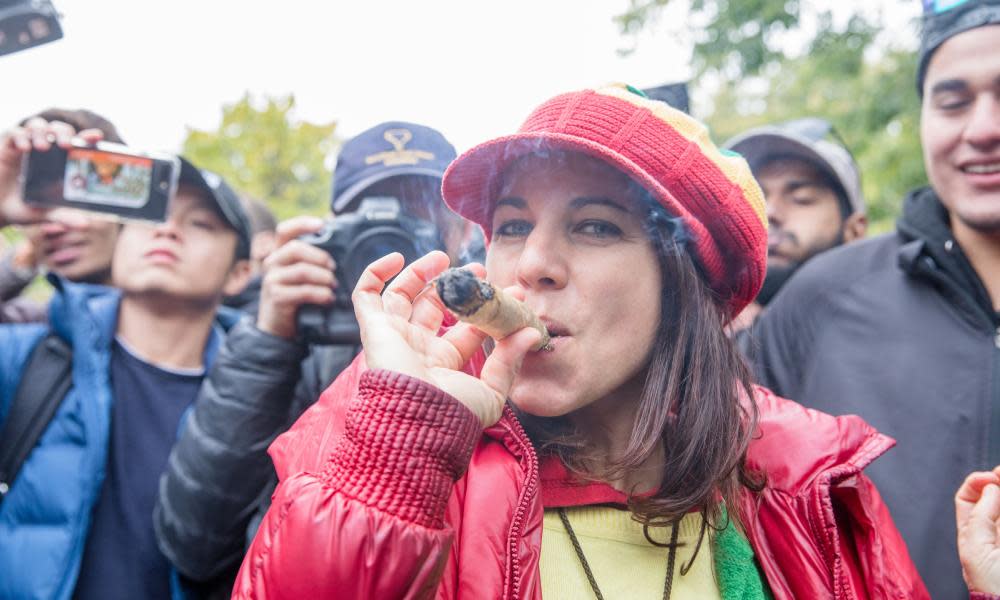Former Met police chief urges rethink on cannabis

The former Metropolitan police chief Bernard Hogan-Howe has urged the government to review the evidence that justifies the ongoing criminalisation of cannabis use after a host of leading clinical bodies called for changes.
Lord Hogan-Howe, who has always supported tough laws on cannabis, said that if he was home secretary he would hold an “urgent commission of experts to look at the evidence about what’s happening about cannabis in North America”.
He said: “We already know from the evidence around the world that where people use it for medicinal purposes, it slides into recreational. Surely it’s better that we get ready for that potential change.”
His intervention follows the legalisation of recreational cannabis in Canada last week, its decriminalisation in Uruguay, Portugal and in several US states, and the relaxation of cannabis laws in the UK to allow the prescription of cannabis-based medicines from next month.
Hogan-Howe, who was Britain’s most senior police officer before he retired last year, stopped short of calling for an immediate law change, but said he had seen “clear evidence” to warrant a meaningful review of cannabis prohibition.
“I think we need to get on with it, now the government has made it easier to get medical cannabis on prescription,” he said. “We’re lucky; we’re not the pioneers and we can learn from others’ mistakes. The evidence is out there and it shouldn’t be ignored.”
Hogan-Howe joins a growing list of prominent figures who have cast doubt on the coherence of the UK’s approach to enforcing laws that are often ignored with impunity, given that a number of police forces have publicly said they would not prosecute perpetrators of low-level cannabis offences.
Some police and crime commissioners have even advocated the use of cannabis social clubs as a means to reduce drug-related crime.
In a surprising intervention earlier this year, the former Tory leader William Hague said cannabis laws were “inappropriate, ineffective and utterly out of date”.
The home secretary, Sajid Javid, moved to liberalise the rules on when cannabis products can be given to patients after considering expert advice following a number of high-profile cases that campaigners said demonstrated the UK’s archaic approach to breakthrough medicines.
Nonetheless, Javid has repeatedly stressed that the government had “no plans to decriminalise recreational cannabis”.
Consternation around relaxing cannabis laws for medicinal and recreational use has been rooted in a belief that the drug can increase the risk of developing a psychotic illness such as schizophrenia. However, healthcare professionals and campaigners claim legalisation would improve the quality of cannabis and provide a greater variety of strains, away from the high-strength skunk that is readily available on the black market throughout the UK.
A recent study, the largest to date on the relationship between predisposition to schizophrenia and cannabis use, found weak evidence for a causal link between the two.
In a further example that attitudes among leading medical institutions are beginning to shift, the Royal College of Psychiatrists announced earlier this month it would review its opposition to the legalisation of cannabis. The college’s position has been central to the government’s refusal to publicly consider any further reform, since its members advise ministers on mental health issues and the misuse of drugs.
A series of other leading organisations, such as the British Medical Journal, the British Medical Association and the Royal Society for Public Health, have also called for changes.

 Yahoo News
Yahoo News 
